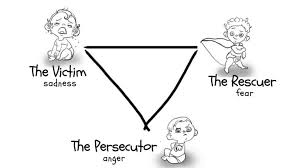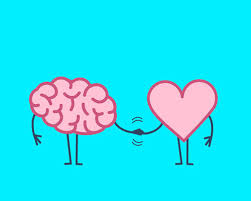In our life we set up small and big goals and sometimes we sit down and think what we would like to achieve, what our needs are. Our desires and needs urge us to act and with it determine our attitude and behaviour. How does it work? What kind of major needs we have and how they influence us. According to Henry Murray who made the motivation based identity theory, need is a kind of an internal deficiency condition, a driving force which motivate us to strive for eliminate this deficiency to maintain or achieve our well-being.
Murray defined two major groups of basic needs. The primary needs are biological origin, like water, food, air, sexual needs and these needs must be satisfied again and again. The secondary group is (psychogenic need) those desires which come from our particularity of our psychic processes. Psychogenic need is for instance the need of power and the need of accomplishment.

The strength of our needs defines the intensity of our actions, their directions, the priority, enthusiasm and the profoundness as well. The stronger a need is, the faster it will be expressed. Our needs probably exert their influences by motives. Motives represent emotionally dyed subjective experiences which also influenced by environmental effects. The environmental influence is an external condition which creates a desire to get or avoid something, like our internal needs, produces similar effects. For instance we crave for a delicious food in front of us even if we are not hungry.
Our needs change depending on time and circumstances but also our own motivation tendency. For instance somebody is strongly motivated to be surrounded by others but other people like to be alone.
Some needs can become absorbed by others, complete each other but also conflict can appear between. For instance when we have a strong desire to be free but in the meantime we feel to be connected to others.
What kind of types of need we can separate from each other and how do they affect our behaviour and identity?
Most of the researches focused on the need of accomplishment, need of power, the affiliation need (building up social relationships and maintaining them) and the need of intimacy.
Need of accomplishment
The principal of this need is the desire to accomplish task better and better and the joy to overcome obstacles. Those obstacles and tasks can be easy to solve, or more difficult or solvable very difficultly. Those people whom undertake the very easy and the most difficult tasks more willingly have a low need of accomplishment. To accomplish easy tasks the good feeling of success is easily accessible. But if they can’t accomplish a difficult task that doesn’t show them so negatively because there is a chance that other people wouldn’t have been able to accomplish or solve it as well. Those people who have high accomplishment need undertake willingly the average tasks because to solve them provides the feeling of challenge, accomplish the task is a real goal and they are able to get more information about their own capabilities.
Need of power
The need of power is expressed in the desire of prestige, have an effect on others and the desire of obtaining beneficial positions. Those people who have strong need of power feel good in situations where they are superior and powerful. They are susceptible to being surrounded by symbols of dominancy, they like those properties which shows high prestige. Social recognition is an important motivation force to them, they make a lot of effort to convince others about their own point of view and during negotiation just rarely make concessions. If the need of power is associated with high feeling of liability the effort for prestige is done honestly, the exercise of power is not contrary to the norms of society. If the feeling liability is low, the desire of have an effect on other people is often impulsive and aggressive.
Need of affiliation
This need urges us to look for other people’s company, this is the desire of building up connections and relationships, maintaining them and interacting. For those people who have high need of affiliation often take the initiative relationship and easier to get friends. Important for them being accepted and loved by others and they don’t like if someone is criticizing their social skills. They are willingly and actively participating in social events and spend more time with social activities.
Need of intimacy
The meaning of intimacy need is a desire to develop a close, warm and mutual relationship. It’s more than the affiliation need because the importance here is on the closeness and the openness towards another person. Those people who have a high need of intimacy like to participate in private talks, open up easily and often share their thoughts with friends and often talk about their feelings. They pay attention better to their companions because it’s important to them that their friends feel good. In talks often maintain eye contact, more often smile and laugh but they don’t want to dominate the social scene. Regarding to the results of researches the need of intimacy is incompatible with the need of power and if these needs are strongly present that often can cause problems in adaptability.
Other types of need according to Henry Murray’s system of needs:
Raillery to inanimate objects: appears in the need of possession, order, reservation and creation.
The need of hiding, defense and resistance furthers the need of status protection.
Dominancy, adaptation, autonomy, opposition, aggression, self-abasement and the avoidance of shame are connected to the need of power.
The need of refusal, care, finding support and play are connected to the feeling about other people.
Our needs motivate us in several appearance forms. If we got to know our personal needs and motivations that would help to understand our own behaviour.
Picture:www.revolvy.com






